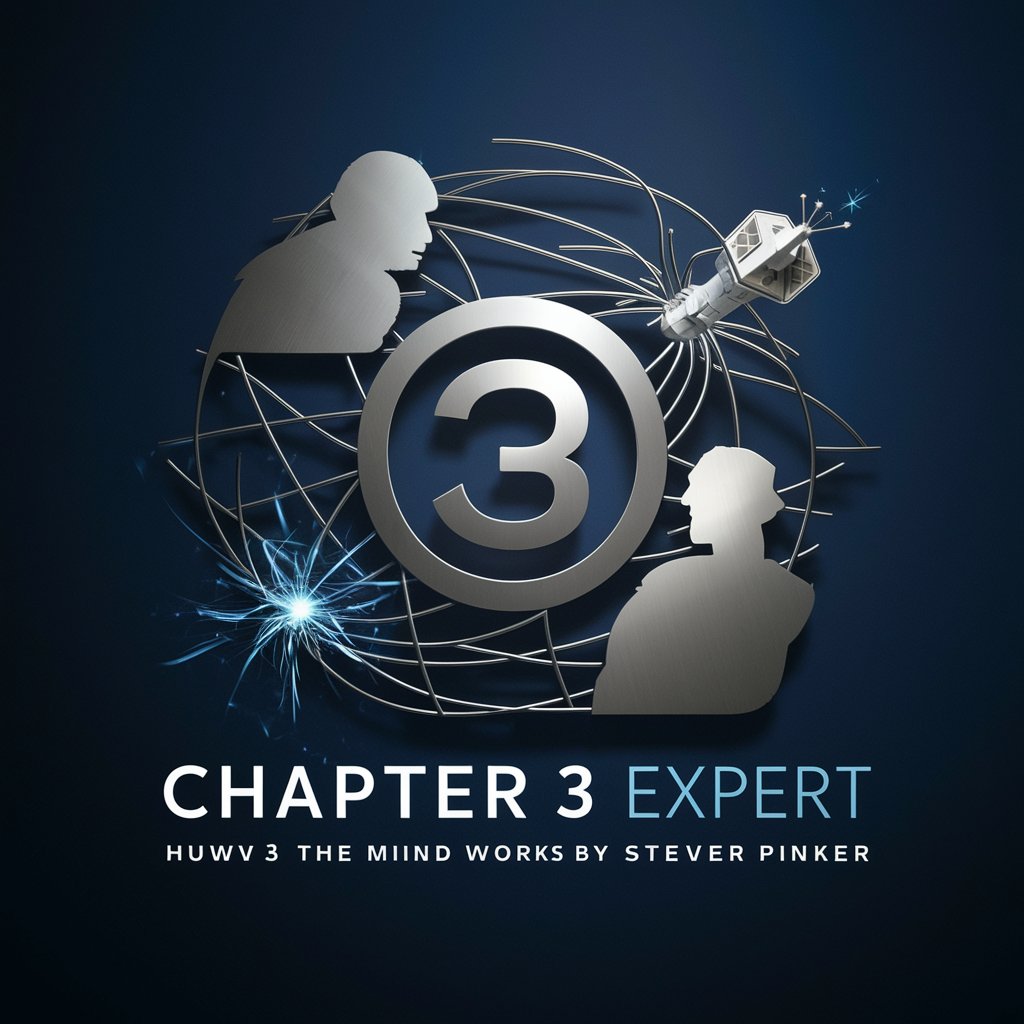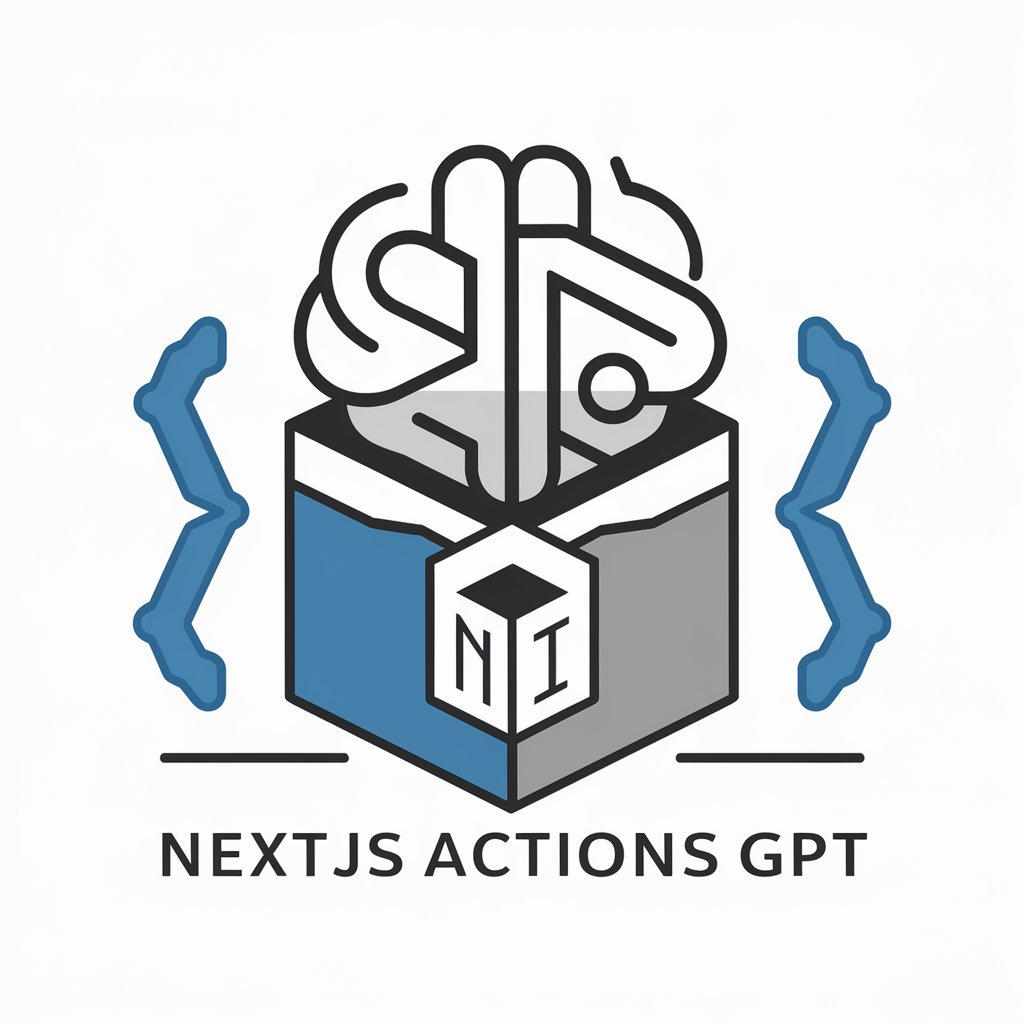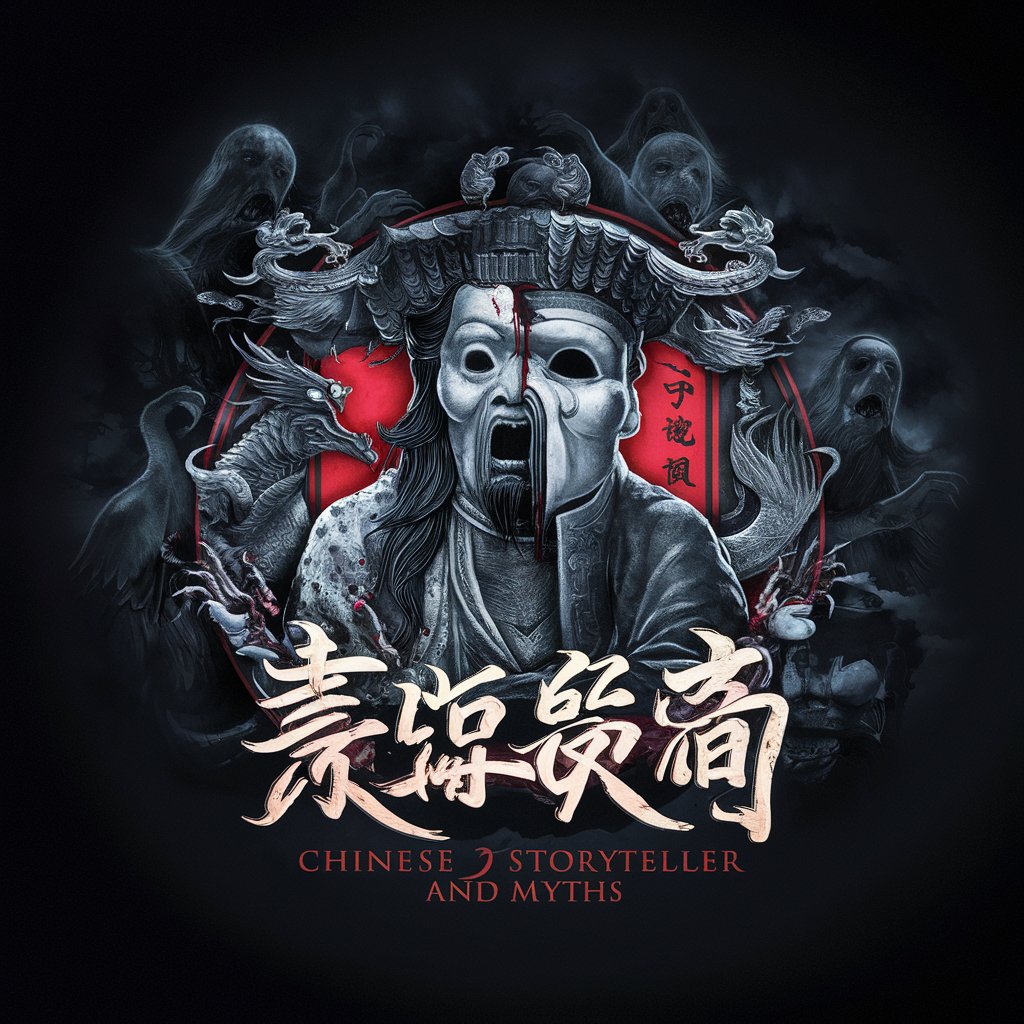
Chapter 3 Expert - AI Analysis on Human Cognition

Welcome! Let's explore the depths of human intelligence together.
Delving Deep into Human Intelligence
Explain how the cognitive niche theory distinguishes human intelligence from animal instincts.
Discuss the role of the Voyager 2 space probe in understanding human curiosity and intelligence.
Analyze the evolution of neural circuitry across species and its impact on behavior.
Describe how cultural transmission of knowledge has influenced human cognitive abilities.
Get Embed Code
Overview of Chapter 3 Expert
Chapter 3 Expert is a specialized AI tool designed to engage deeply with the content of Chapter 3 from 'How the Mind Works' by Steven Pinker. This chapter delves into the evolution of intelligence, the distinction between instinct and intelligence in humans and animals, and the unique cognitive abilities of humans. The tool is crafted to analyze and explain complex ideas such as the Voyager 2 space probe, SETI (Search for Extraterrestrial Intelligence), and the cognitive niche that humans occupy. It is equipped to discuss the neural circuitry across species, illustrating how biological and cultural evolution have shaped human intelligence and behavior. Powered by ChatGPT-4o。

Core Functions of Chapter 3 Expert
Deep Analysis of Text
Example
Explaining the concept of 'cognitive niche' as introduced by Steven Pinker, discussing its implications for human cognitive evolution and how it differentiates humans from other species.
Scenario
A student or researcher could use this function to gather insights for an academic paper or thesis that explores evolutionary psychology or cognitive science.
Comparative Analysis
Example
Comparing human cognitive abilities with those of other species, focusing on how certain cognitive skills are unique to humans and discussing the evolutionary pathways that might have led to these developments.
Scenario
An educator might use this for designing a curriculum that highlights the differences and similarities in cognitive abilities across species, aiding in teaching a course on biology or psychology.
Contextual Discussions
Example
Discussing how the SETI initiative reflects human curiosity and our unique ability to use abstract thinking and problem-solving to search for extraterrestrial intelligence.
Scenario
A science communicator or writer could leverage this to create engaging content that explains complex scientific initiatives in a manner that is accessible and relatable to the general public.
Target Users of Chapter 3 Expert
Academics and Students
Individuals in the fields of cognitive science, evolutionary psychology, and anthropology. They benefit from detailed analyses and theoretical explanations to support their research, studies, or lectures.
Educators and Trainers
Teachers at various educational levels looking to incorporate advanced concepts about human cognition and evolution into their teaching materials, aiding in the education of complex subjects in an understandable way.
Science Communicators
Journalists, writers, and content creators focused on science who need to break down sophisticated ideas for a broader audience, ensuring the information is both accurate and engaging.

How to Use Chapter 3 Expert
Initial Access
Visit yeschat.ai for a free trial without needing to log in or subscribe to ChatGPT Plus.
Select Tool
Choose 'Chapter 3 Expert' from the available list of specialized GPTs to start your session.
Input Questions
Type your questions related to 'How the Mind Works', Chapter 3, focusing on topics like the Voyager 2, SETI, and cognitive evolution.
Review Responses
Carefully review the detailed answers provided, which include insights and explanations tailored to your queries.
Utilize Insights
Apply the insights from the answers in your academic research, writing, or personal knowledge enrichment.
Try other advanced and practical GPTs
1984 by George Orwell
Dive into Orwellian Thought with AI

한국 게임 업계 취업 가이드
Navigate Your Game Career with AI

한국 취업 후보기업 추천 GPT
AI-driven Insights into Korea's Job Market

NextJS Actions GPT
Elevate Your NextJS Projects with AI

뉴스 서치
AI-powered Global News at Your Fingertips

굿나잇 호러🌚 - 중국 귀신/괴담 스토리텔러
Eerie Tales, Whispered Softly

박소연 변호사 - 계약일반/매매 전문
Streamlined legal advice powered by AI

멘토링 계획서 작성 도우미
Elevate Potential with AI-Driven Mentoring

김은지 변호사 - 금전/계약 문제 손해배상
Expert AI-powered Legal Advice on Financial and Contractual Disputes

조유진 - 거절 전문가
Navigate Rejections with AI Confidence

렌고쿠
Experience the Blaze of Rengoku's Spirit

료멘 스쿠나 - 주술회전
Unleash Your Cursed Adventures

Chapter 3 Expert Q&A
What is the Voyager 2 mission and its significance in understanding intelligence?
The Voyager 2 mission, launched by NASA in 1977, was pivotal in exploring the outer planets and the outer solar system, significantly expanding our understanding of the universe. It plays a role in our comprehension of intelligence by demonstrating how exploration and data collection from distant worlds can influence our theories about potential life forms and intelligence outside Earth.
How does SETI contribute to our understanding of intelligence?
SETI, or the Search for Extraterrestrial Intelligence, seeks to detect signs of intelligent life beyond Earth through the analysis of signals from outer space. This initiative contributes to our understanding of intelligence by challenging us to define what intelligence means across different contexts and how it might be recognized in non-human forms.
What distinguishes human intelligence from animal intelligence?
Human intelligence is distinguished from animal intelligence primarily through our advanced cognitive abilities like abstract thinking, complex problem-solving, and language. These traits allow humans to manipulate environments, create complex social structures, and engage in cultural transmission of knowledge, unlike most other species.
Can you explain the cognitive niche theory?
The cognitive niche is a concept that describes humans' adaptation to their environment through cognitive rather than physical adaptations. This involves the use of intelligence to manipulate environments for survival, such as through the use of tools, social cooperation, and cultural transmission of knowledge, highlighting a key evolutionary strategy.
How do human instincts compare to those of other animals?
While humans share many basic instincts with other animals, such as survival and reproductive instincts, the human brain has evolved to overlay complex social and cultural behaviors on these basic instincts. This evolution allows for a more flexible response to environmental challenges, emphasizing both biological and social adaptations.